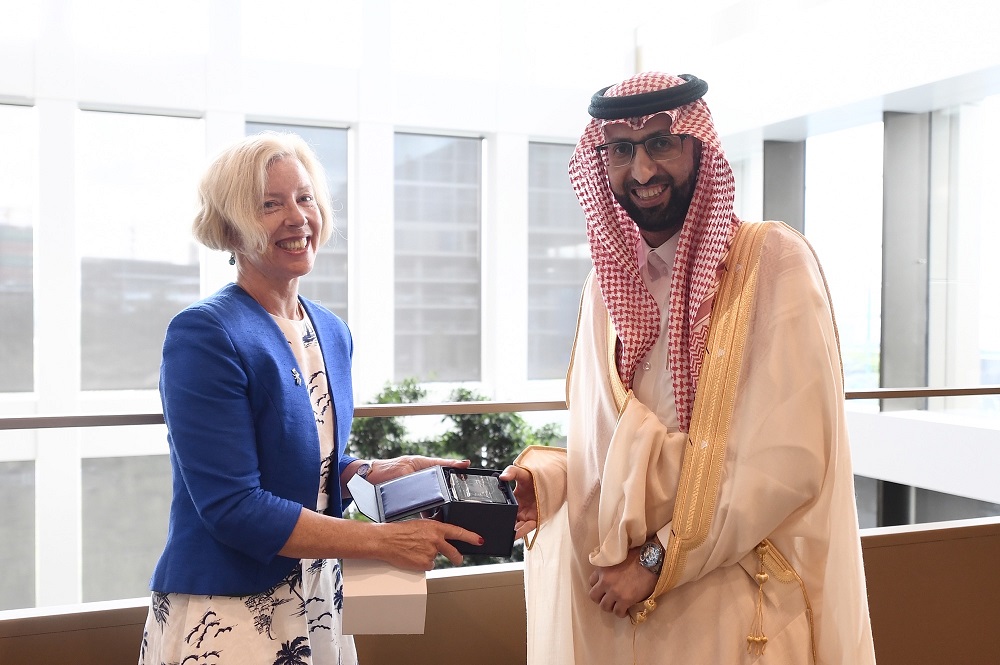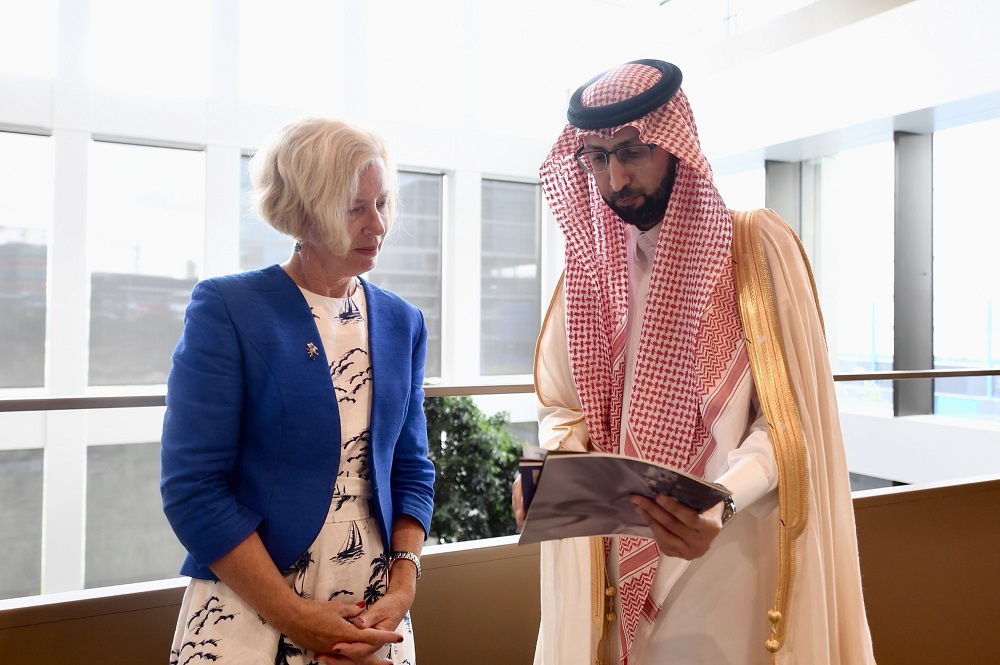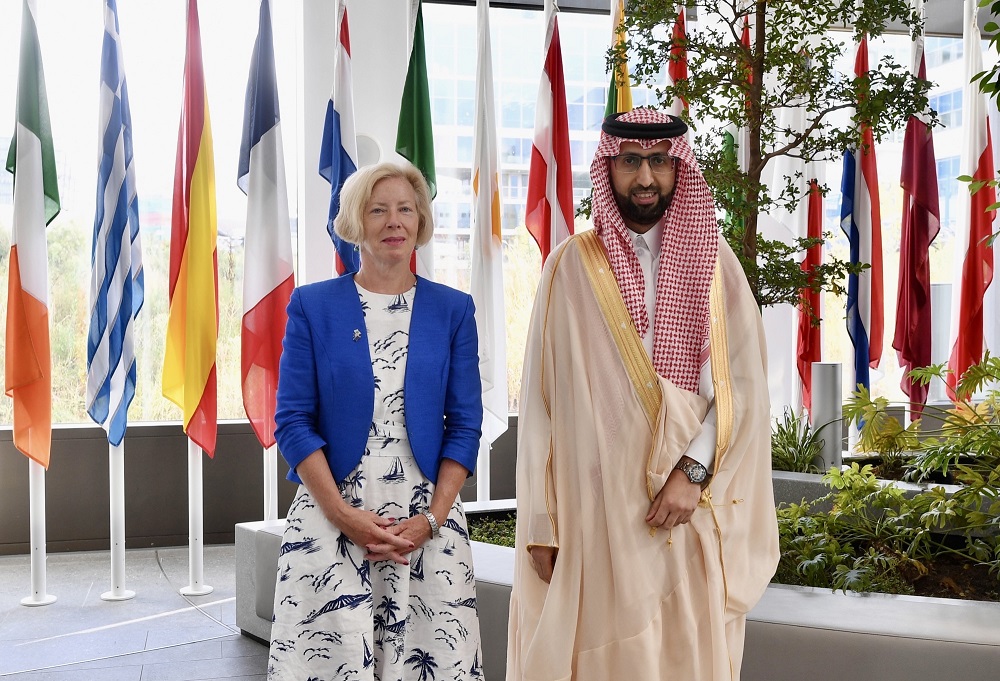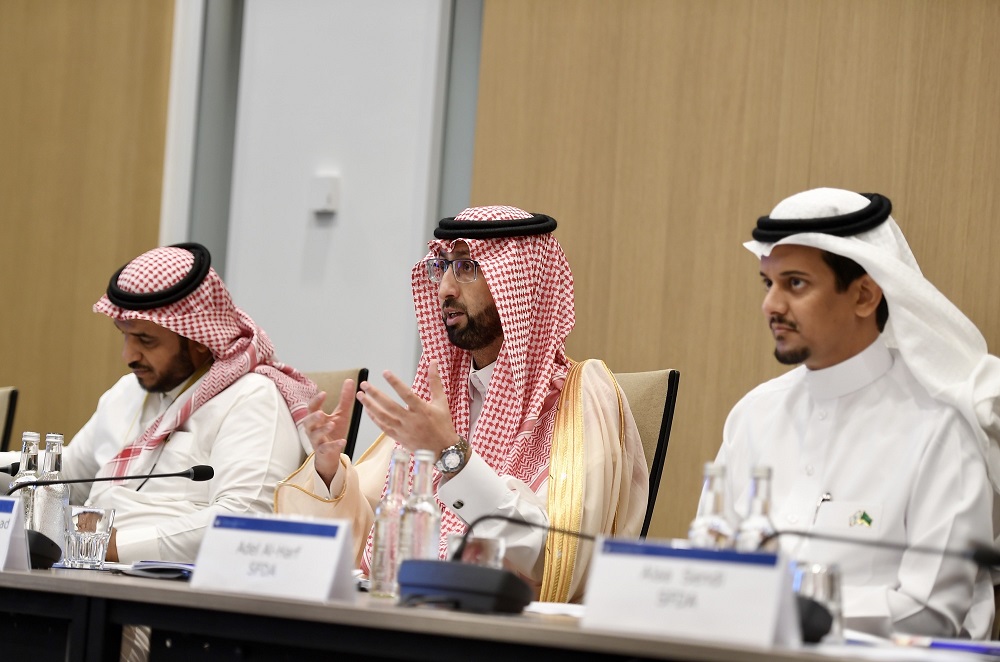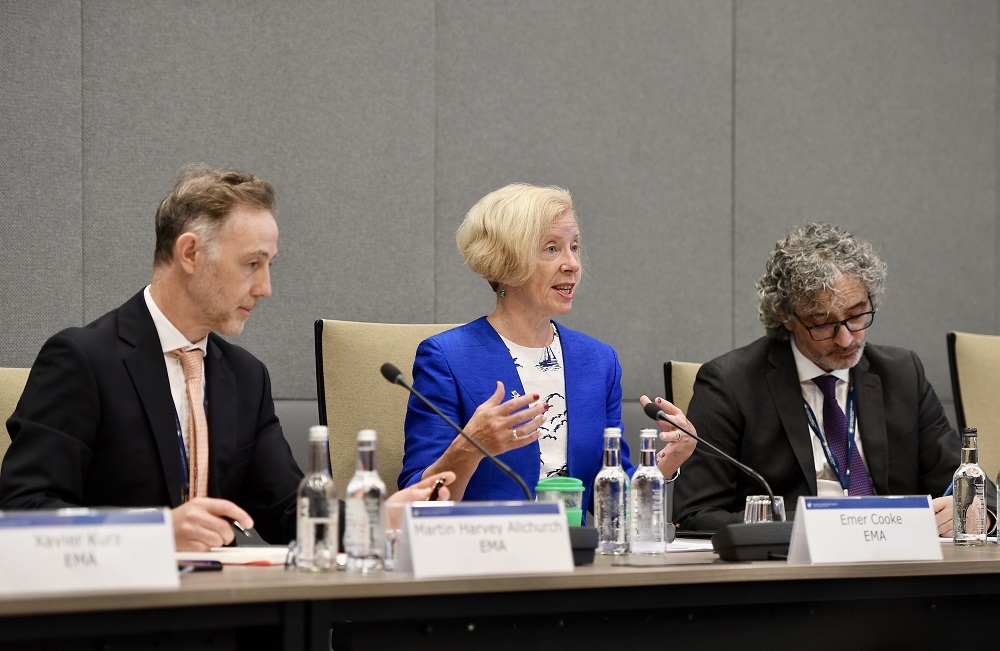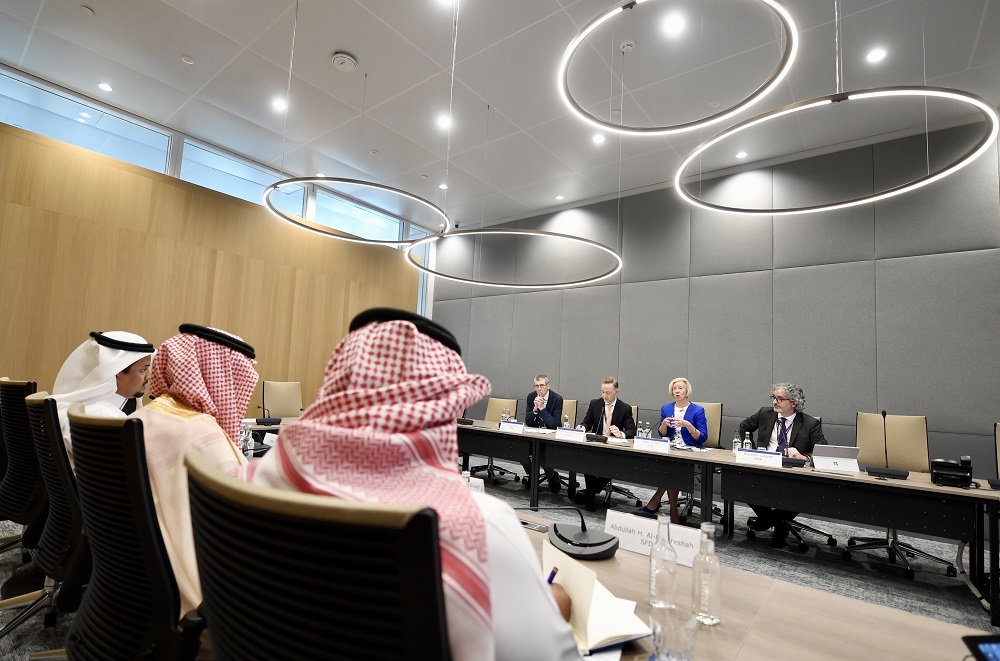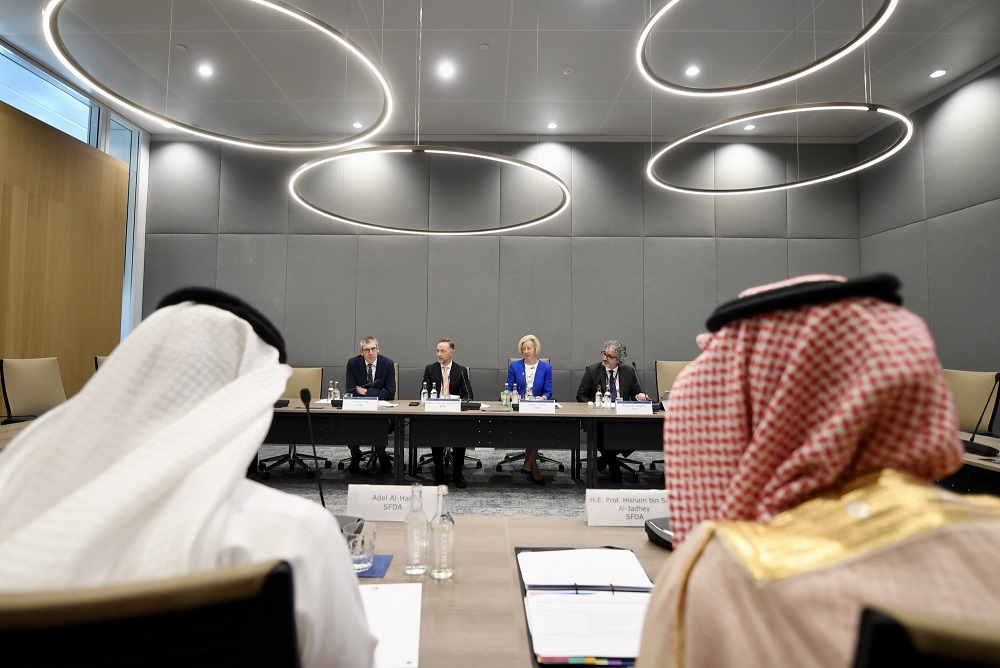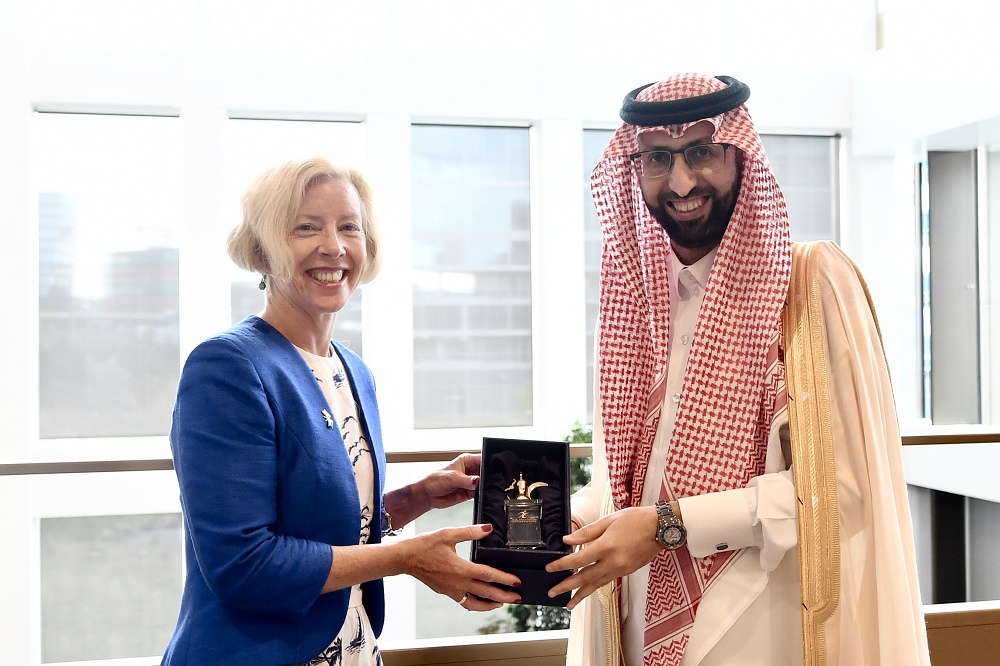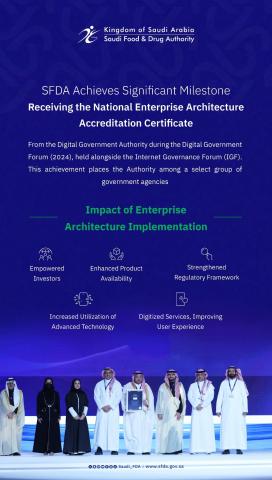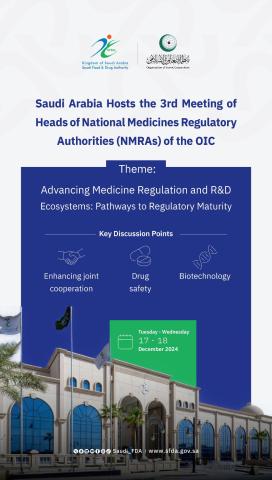Dutch regulatory and scientific bodies praised the experience of the Kingdom of Saudi Arabia to efficiently and effectively contain the outbreak of the Coronavirus. They also lauded the development of the health sector in particular in the field of vigilance and drug safety, monitoring the safety of medicines, evaluating pharmaceutical, biological and veterinary products, monitoring food products, devices and medical products and assessing their risks.
These praises and positive opinions came during the official visit of the delegation of the Saudi Food and Drug Authority (SFDA) to the Kingdom of the Netherlands recently, during which several meetings were held with leading scientific and regulatory bodies to discuss possible cooperation opportunities, and to exchange distinguished international experiences and relevant expertise.
Through this visit, the SFDA aims to review the success stories of the Kingdom and the Authority, especially in the fields of food, medicine, devices, medical products, cosmetics, pesticides and feed. It also aims to review the distinguished international experiences in the field of biotechnology, and to to discuss ways of cooperation in the developmental and regulatory fields to enhance local capabilities and provide the necessary capabilities to contribute to the development of the national biotechnology system. This visit targets achieving strategic goals in this vital sector in terms of localizing vital industries and pharmaceutical security for vital medicines and vaccines.
SFDA’s delegation was briefed on the services provided by each entity in the relevant fields, to mutually benefit from experiences and practices that contribute to protecting society by ensuring the safety of food, medicine, devices, medical products, cosmetics, pesticides and feed.
The delegation visited the Dutch National Institute for Public Health and the Environment (RIVM), where the institute owns laboratories for biopharmaceuticals and a collaborative center in food safety in cooperation with the World Health Organization (WHO) and the Codex Alimentarius Commission (CODEX).
The RIVM also has cooperation and coordination with the European Food Safety Authority (EFSA) to standardize food monitoring programs and food consumption research projects, as well as an interest in international cooperation opportunities in the field of medical devices, specifically with the Global Harmonization Working Party (GHWP) of Medical Devices.
One of the most notable visited entities was the European Medicines Agency (EMA), which is a decentralized agency of the European Union responsible for scientific evaluation, supervision and safety control of medicines in the European Union, and has a number of working groups and related groups.
EMA is a networking organization whose activities involve thousands of experts from across Europe. These experts carry out the work of EMA's scientific committees to evaluate drugs throughout its life cycle from the early stages of development, through marketing authorization to safety monitoring as soon as they are on the market.
This was followed by a visit to the Division of Pharmacoepidemiology and clinical Pharmacology at Utrecht University. This Division aims to identify areas of development in the health field in partnership with patients, health care providers, drug developers and drug regulators.
The Division contains three research centers, namely, Centre for Pharmacoepidemiology, the Centre for Clinical Therapeutics, and the Centre for Pharmaceutical Policy and Regulation, in cooperation with the WHO.
The delegation's agenda included a visit to the Netherlands Food and Consumer Product Safety Authority (NVWA), which monitors animal and plant health, and the safety of food, feed and consumer products, in addition to enforcing its own legislation.
Its duties also include risk assessment and communication, inspection, verification and examination, enforcement of regulations and legislation, incident and crisis management, and policy advice to officials.
The visit also included the Medication Evaluation Board (MEB). The MEB evaluates the quality, efficacy, and safety of the medicines submitted for registration. It also encourages the optimal use of the medicine by the patient. The Board work covers all pharmaceutical products, whether they are prescription or nonprescription preparations, or they are traditional or manufactured products.
The Board also makes recommendations to the Dutch Ministry of Health, which the Board operates under its umbrella. The Ministry is responsible for implementing decisions such as approving the registration or withdrawal of a product based on safety reports. Among the Board’s work is the evaluation of veterinary medical products through the Veterinary Medicinal Products Unit and the evaluation of new foods. It also contributes to the decision-making process of the Veterinary Medicines Board.
Among the scientific bodies visited by the SFDA delegation in the Netherlands is the Wageningen Food Safety Research (WFSR), which considered as an international and European reference laboratory and one of the important sources for assessing accidents and crises affecting the work of the Netherlands Food and Consumer Product Safety Authority, the Dutch Ministry of Agriculture, Nature and Food Quality, and the Dutch Ministry of Health, Welfare and Sports. It also plays a role in reducing incidents of environmental pollution and food poisoning.
The WSFR contributes to conducting laboratory analyzes for the Netherlands Food and Consumer Product Safety Authority, carrying out independent scientific research through laboratory analysis, conducting scientific research in forensic medicine, risk analysis and evaluation, and providing advice to government authorities, collecting the results of monitoring plans from these laboratories and then sending them to the European Food Safety Authority (EFSA).
The SFDA can benefit from the WSFR’s research in the field of food safety, as well as benefit from its laboratories in conducting specialized analyzes in the field of food safety and animal feed.
As one of the best clusters in Europe, the SFDA delegation aimed to visit the training center of the Leiden Bio Science Park. This cluster provides the right environment for biotechnology-related activities, with more than 215 organizations representing 150 specialized companies and many internationally recognized research institutes.
